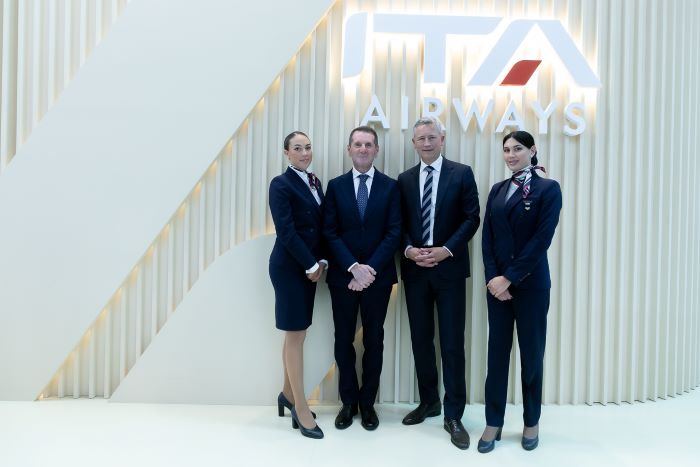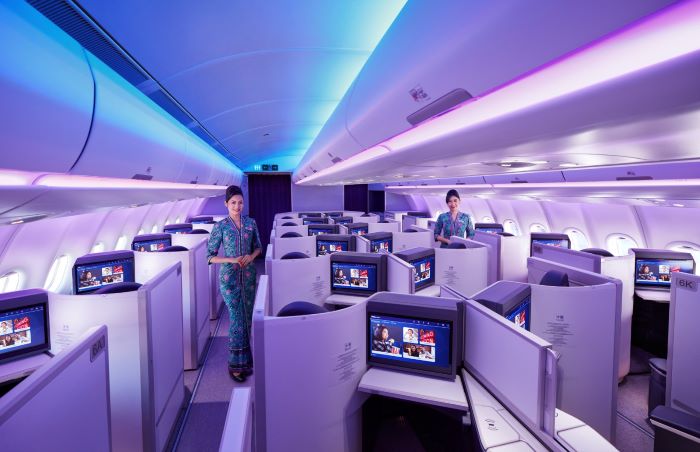The travel and hospitality industry is undergoing a radical transformation, driven by evolving customer expectations, digital acceleration, and the convergence of multiple sectors—from fintech to eCommerce. At the heart of this shift are companies like Vernost, a Software with a Service (SWAS) provider that combines enterprise-grade platforms with localized execution to solve complex challenges for global clients in travel, hospitality, banking, and beyond. TravTalk speaks with Karthik Venkataraman, CPRO, Vernost, to understand how travel tech is evolving, why personalisation is no longer optional, and what’s driving India’s B2B travel tech boom.
Hazel Jain
As a SWAS (Software with a Service) company, Vernost brings together the best of both worlds: enterprise-grade platforms and localised content plus execution capabilities. This combination enables us to solve complex challenges for some of the most trusted names across travel, hospitality, banking, telecom, eCommerce, and aviation.
In the travel and hospitality space, Vernost powers transformation for a diverse set of global clients—including a global leading Indian airline, a global TMC headquartered in Bahrain, a prominent Indian leisure travel company, and one of the largest B2B travel players in Africa present across 30 countries.
According to with Karthik Venkataraman, CPRO, Vernost, “The industry has witnessed a fundamental shift in recent years. The traditional boundaries separating B2C leisure, B2B corporate, and OTA models are dissolving, creating demand for flexible, scalable platforms that can adapt to hybrid business models.”
He identifies two critical developments reshaping the landscape. “The rise of personalization at scale and the blending of corporate and leisure travel are fundamentally changing how we approach travel technology. Today’s travellers expect far more than generic bookings. They demand AI-driven recommendations, real-time customer segmentation, and CRM systems enriched with behavioural insights. This level of personalization has transitioned from competitive advantage to business imperative,” he says.
Venkataraman notes that the emergence of ‘bleisure’ travel – where corporate trips seamlessly extend into personal vacations – requires platforms capable of managing hybrid itineraries and flexible fulfilment models. “To meet these evolving needs, he observes that “businesses are increasingly adopting modular travel technology – infrastructure that can evolve with changing requirements, ensure regulatory compliance, and integrate across multiple sales channels,” Venkataraman adds.
He is of the opinion that the B2B travel space is experiencing particularly rapid growth. Venkataraman emphasises, “With surging demand for white-label, self-service platforms that empower smaller agents and TMCs with enterprise-grade capabilities. Loyalty programs, once focused solely on end consumers, now extend to B2B relationships, where clients expect value beyond simple pricing through sophisticated rewards and engagement strategies.”
Regarding personalisation, Venkataraman states unequivocally, “This represents a fundamental shift in customer expectations, not just an industry trend. Modern travellers seek experiences meticulously tailored to their lifestyles, preferences and budgets.”
He attributes this transformation to several factors – unprecedented access to customer data across touchpoints, proven ROI from personalised offerings, and consumer expectations shaped by digital leaders like Amazon and Netflix.
Commenting on India’s burgeoning B2B travel tech sector, Venkataraman explains, “The post-pandemic push for rapid digitization created fertile ground for ready-to-deploy solutions. Our country’s deep engineering talent pool has enabled local firms to transition from service providers to creators of scalable, productized software.”
Looking ahead, he observes that the lines between travel, fintech and eCommerce continue to blur. Travel technology now serves as the connective tissue enabling seamless cross-border payments, hyper-personalized experiences, and innovative revenue streams. He concludes with a vision for the future, “Success will belong to those who can successfully integrate technology, content and loyalty into cohesive, intelligent platforms. The future of travel lies in agility, data-driven intelligence and seamless cross-industry integration – a future that Vernost is helping to shape through our innovative solutions.”
 TravTalk India Online Magazine
TravTalk India Online Magazine





